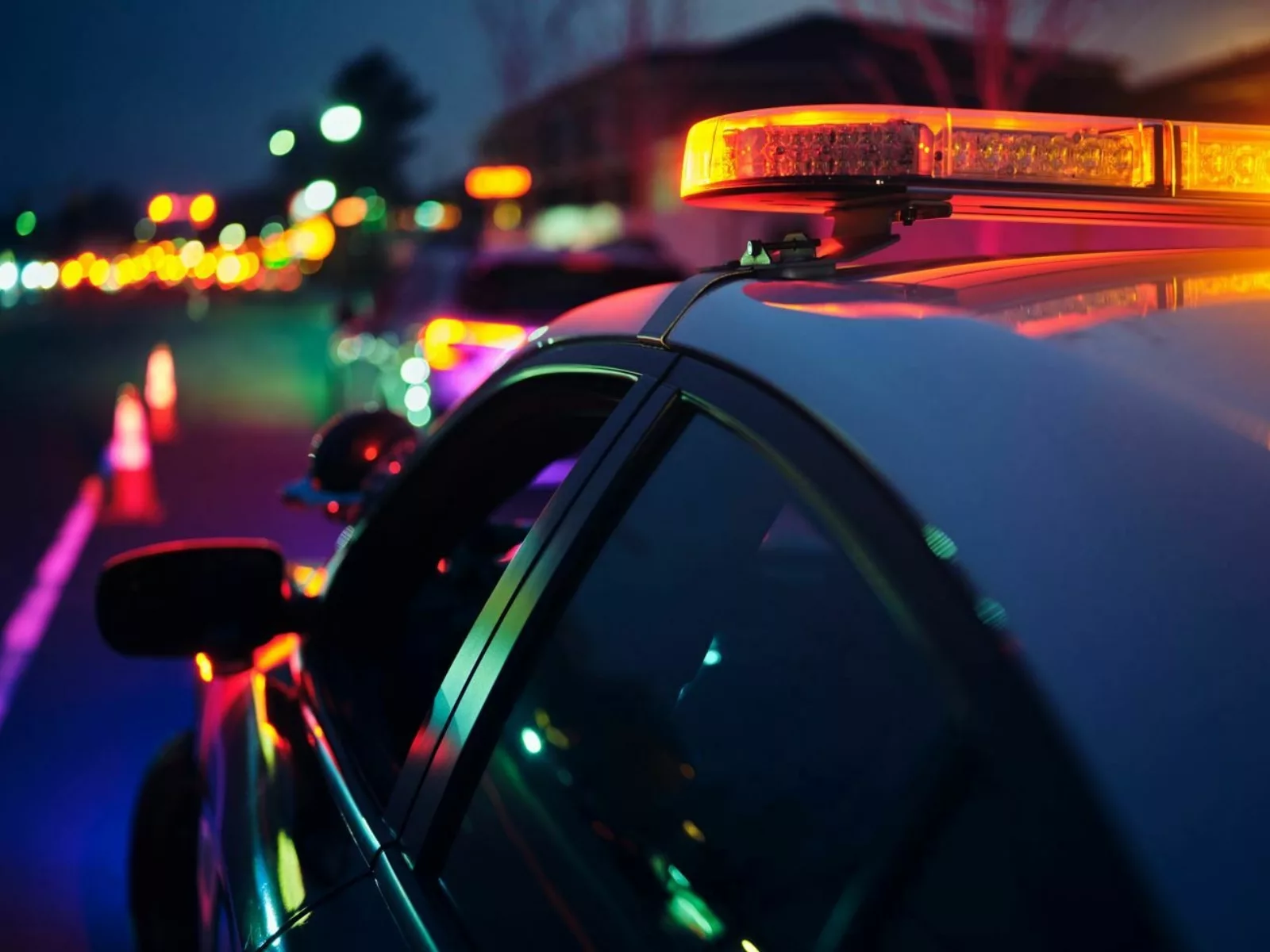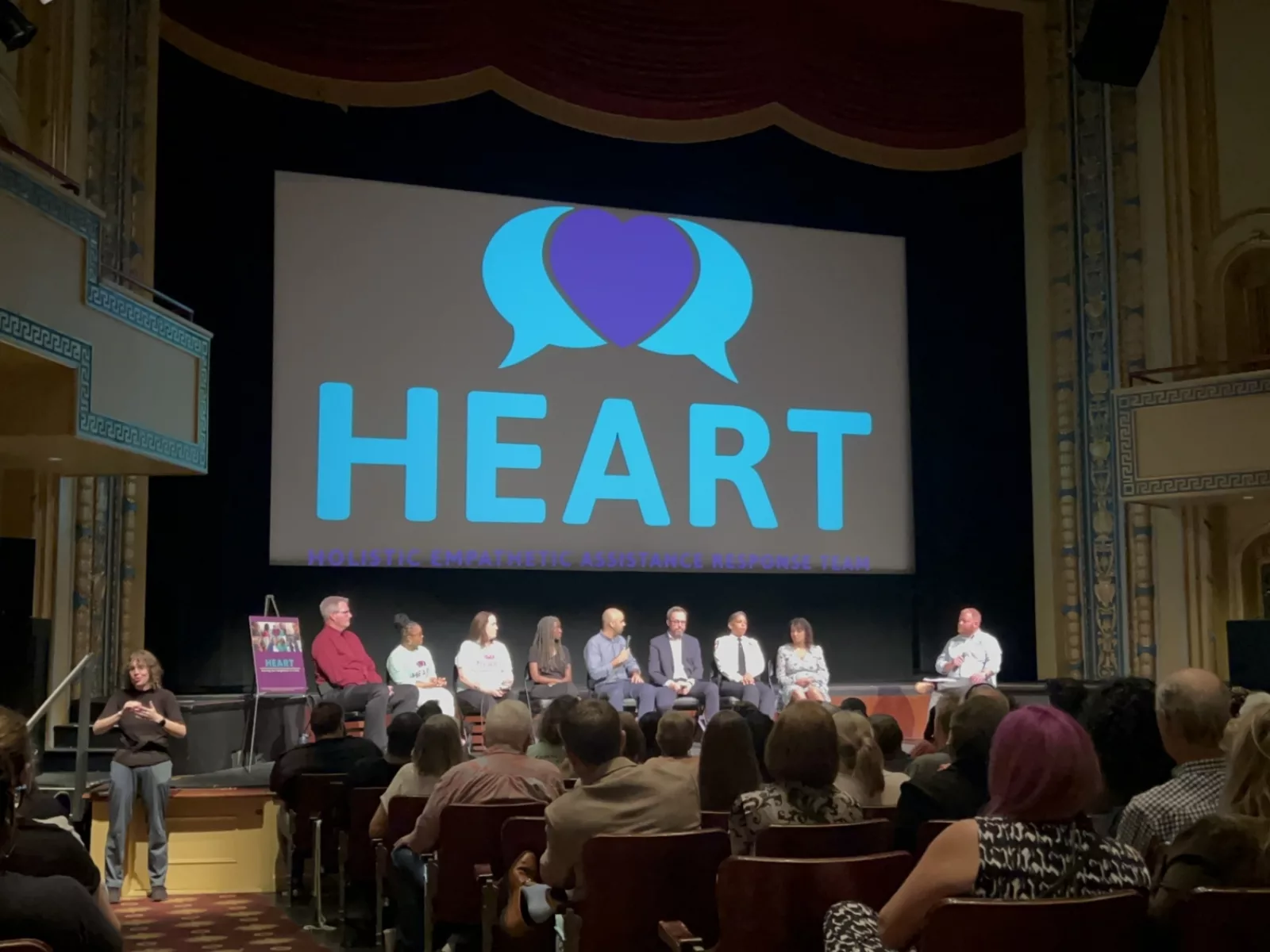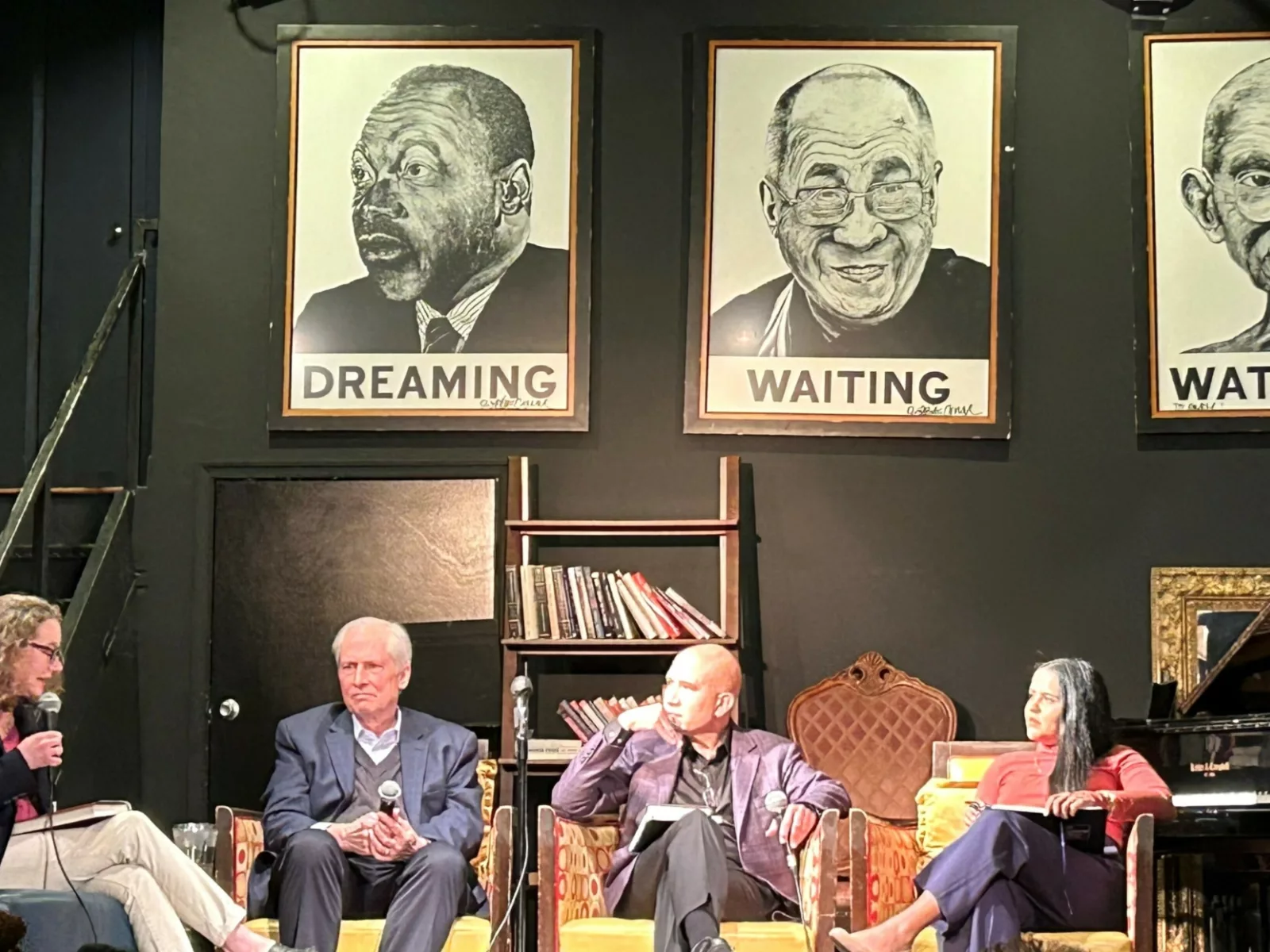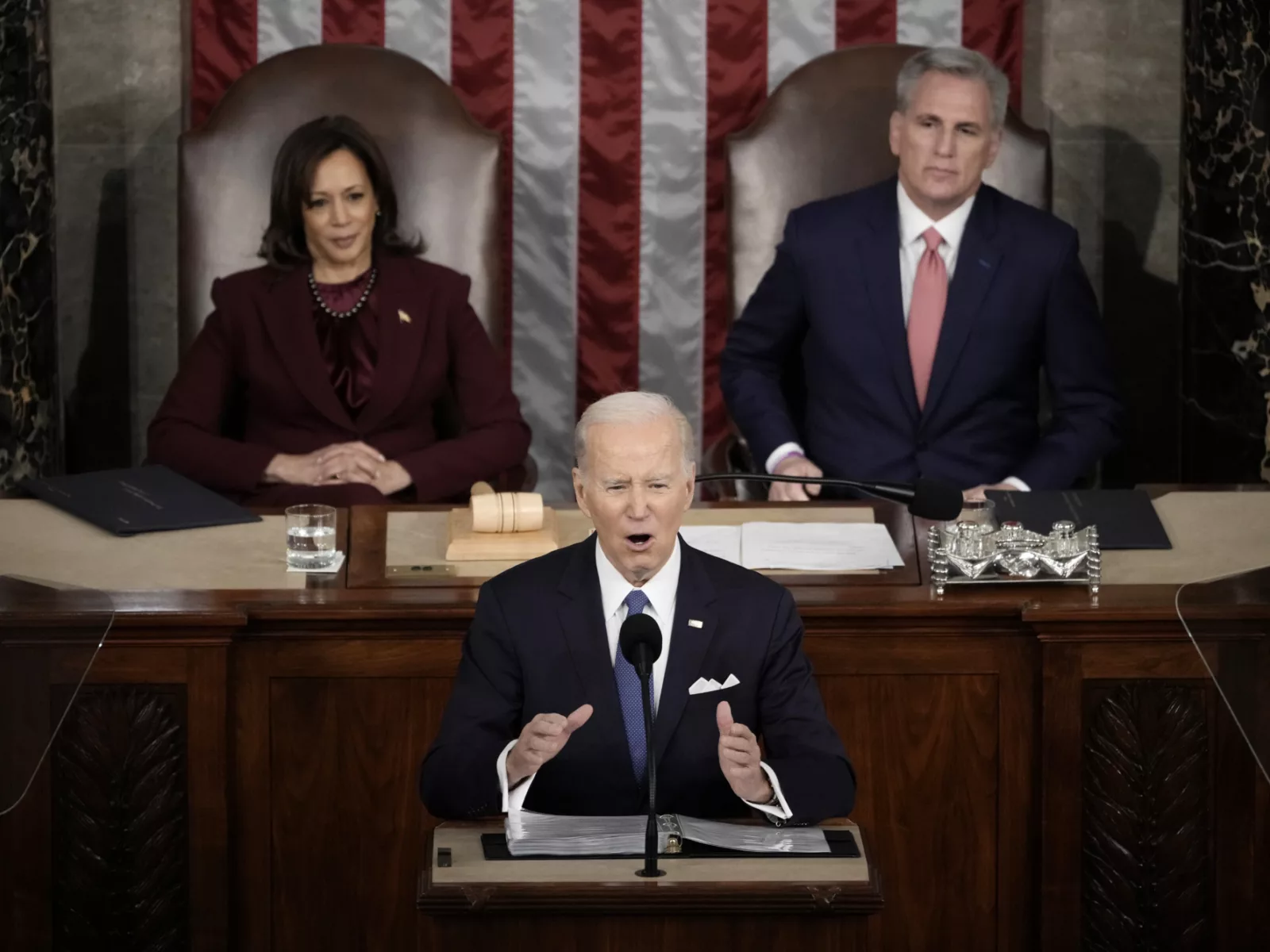When police shot Carlos Hunter 16 times as he sat behind the wheel of his Kia Optima, still in his seatbelt, they took more than his life.
They took a dad away from his unborn child: His daughter, now 1, can only point at the ceiling when asked where her father is.
They took a sense of safety from his middle children, ages 7 and 9, who are so terrified of police officers they recently went into a full panic when encountering one.
And they took the innocence of his older children, who haven’t yet reached adolescence but have been given The Talk — told that because they are Black, they don’t get to make poor choices, because one wrong move could get them killed.
“I just don’t think people realize what’s really going on,” said Nickeia Hunter, aunt to the six children her brother left behind. “They say they see the killings and they say they hear the cries of the families, but this could all be stopped. We the people write the laws that govern our lives; we the people should be able to say we don’t want to die anymore.”

Hunter has been working around the clock since her brother’s death — investigating his case, advocating on behalf of other families whose loved ones were killed at the hands of police, and sharing her story in an effort to get policing reform passed in the Washington state legislature.
They say they see the killings and they say they hear the cries of the families, but this could all be stopped. We the people write the laws that govern our lives; we the people should be able to say we don’t want to die anymore.Nickeia Hunter
She’s not the only one hoping to turn her pain into power by reforming unjust laws.
Across the country, victims of police violence are speaking out in an effort to stop an epidemic that takes the lives of more than 1,000 people each year. Despite the protests and marches and promises to do better, tackling police reform on the local level has not worked. It’s time, advocates say, to get states to take action.
As protesters nationwide called for accountability in the wake of George Floyd’s death last May, lawmakers from coast to coast moved policing reform bills. Some states saw those bills die in committee or get watered down, rendering them ineffective. But others — like Colorado, which essentially ended qualified immunity — passed sweeping legislation that has the promise to change how police operate.
To keep that momentum going and make it easier for states to pass comprehensive reforms, Arnold Ventures (AV) is expanding its policing work and diving deep into state advocacy, working with grantees on model legislation, funding research to test policies, and equipping advocates with the resources they need.
“There have been so many attempts to tackle police reform, but success has been limited,” said Asheley Van Ness, director of criminal justice at AV. “At the end of the day, the number of police shootings and killings has not gone down. This is an urgent issue we have to prioritize. We have to figure out how to create lasting change in America’s police departments, and that means changing laws, state by state.”

First Steps
Arnold Ventures began its strategic planning work for policing last May — just a few days before Minneapolis police officer Derek Chauvin put a knee on the neck of Floyd for more than eight minutes, suffocating him to death over allegations that he used a counterfeit $20 bill. Floyd’s death “really focused us on what’s important,” said Walter Katz, vice president of criminal justice at AV.
Despite the growth of de-escalation training and use of body-worn cameras in recent years and despite repeated promises by police departments to do better, “still, George Floyd was killed, Breonna Taylor was killed,” Katz said, “and we were asking ourselves, what are the conditions that have created the environment where the officer in Minneapolis could kill George Floyd on camera with seeming impunity, where it appeared he just didn’t care that anybody could see this?”
The reality, Katz said, is that with 18,000 law enforcement agencies across the country, each with their own rules and officer protections, it would be extraordinarily difficult to bring about wholesale change by relying on individual departments to do the right thing. The states, however, could be effective vehicles for change.
AV quickly got to work with its partners last summer to formulate a plan, and by fall, the wheels were turning.
The first step was taking a look at what kind of research existed on police reform and identifying the gaps in knowledge. For that, AV turned to Jennifer Doleac, director of the Justice Tech Lab at Texas A&M University, who in the midst of the Floyd protests had already started crowdsourcing researchers on ways the country could reform police practices.
That October and December, Doleac held roundtables with some of the top researchers on policing reform as well as policy experts, law enforcement officials, and advocates. The group discussed such topics as the consequences of misconduct, how data could be used to predict problem officers, and the effects of training on behavior. And while many good ideas came from the discussions, the message was clear: A lot more research needed to be done in order to craft policy based on evidence.
And that evidence is critical, Doleac said, if the country is serious about solving policing problems.
“If our goal here is not just to signal that we care but to actually change outcomes for the better, we need to actually go out and see if the policies and practices we’re trying are having the benefits we want,” Doleac said. “Because if they aren’t, then we’re simply wasting our time.”
In addition to paving the way for future research, AV is supporting the Policing Project at the NYU School of Law to craft model legislation. AV and the Policing Project decided to first focus on the topics most likely to find bipartisan support, have a significant impact, and be ready when new legislative sessions began in January.
The first two pieces of that model legislation were recently released: a state statute aimed at regulating use of force and one on data collection and transparency. In the coming months, the Policing Project plans to release model legislation on decertification and hopes to eventually offer a compendium of policing statutes.
Maria Ponomarenko, co-founder of the Policing Project, said she’s excited to get the legislation into the hands of lawmakers, because what they’ve compiled — with input from policy experts, community members, and police officials — is so comprehensive.
“Too often states deal with policing in a very reactive, pinprick, single-issue fashion,” Ponomarenko said. “The reality is these sorts of reforms are not going to have much of an impact. We’re trying to think more comprehensively about what states should be doing to ensure policing is effective, just, and safe.”

In the States
Learning how much — or how little — has been accomplished at the state level is another key part of AV’s new effort. For that, it turned to the nonpartisan National Conference of State Legislatures (NCSL), which had recently launched a database tracking all pending state legislation on policing across the country. At the request of AV, NCSL started work on a second database — a look at the statutory laws that regulate or impact law enforcement in all 50 states.
Because legislatures are responsive bodies, often passing laws in response to national events that drive conversations around public policy, Amber Widgery, program principal at NCSL, wasn’t surprised to see so many pieces of legislation emerge after last summer’s reckoning — more than 700 related to policing in the last half of 2020 and more than 1,600 since 2021 began. But what has been striking, she said, is the scope of the bills and how fast the legislation is moving.
“What was so interesting to us was watching legislation move with such tremendous speed and broad-based agreement amongst legislators,” Widgery said. “And I think we’re seeing that carry over to 2021.”
That’s exactly what’s happening in Washington state, which managed to move four of community advocates’ priority police reform bills out of chambers before the cut-off deadline. The bills cover extensive topics — including prohibiting chokeholds, neck restraints, and no-knock warrants; creating clear use-of-force standards; broadening the state’s ability to decertify officers who commit misconduct; and creating an independent state office to investigate deadly force incidents.
Washington Rep. Jesse Johnson, who is the primary sponsor of two of the bills, sprang into action last summer after seeing the broad support for police reform spill out into the streets. Not only were his constituents reacting to Floyd and Taylor’s deaths, but to a tragedy closer to home: the death of Manuel Ellis, a Black man who suffocated while being restrained by Tacoma police.
“For decades communities of color have been sounding the alarm to address these issues, and I felt like we finally had the majority of people saying we need something to change,” said Johnson, one of only four Black members of the state legislature at the time.
Washington state lawmakers went through a deep learning process with stakeholders to get input on legislation — and while community advocates and law enforcement groups were consulted, it was critical, Johnson said, to center the legislation on the lived experiences of people whose families were directly impacted by police violence.
He believes their voices have been essential to the process. Not only did they participate in the crafting of the legislation, they were there every step of the way, speaking directly to law enforcement groups and legislators and at town halls.
“They are the reason why the bills made it this far,” Johnson said. “Because you can’t say that Washington state is immune from what we’re seeing across the rest of the country, because these are our own community members talking about what has happened to their families.”
The voices of those directly impacted by police violence — including the mother of 23-year-old Elijah McClain, who was killed by Aurora police in 2019 — played a significant role in getting legislation passed in Colorado as well, said state Rep. Leslie Herod.
“I do believe that them being a part of that conversation softened people’s hearts and minds enough to get [legislators] to the negotiating table,” she said.
The legislation has also been deeply personal for Black lawmakers like Johnson and Herod, who have experienced the effects of a biased policing system. Johnson remembers being 5 years old when police pulled his dad over, claiming his car was stolen. “I remember looking out of the window and seeing guns drawn, him face-down on the hood of the car, and any wrong move and I probably would have grown up without a father,” Johnson said. “That’s the kind of experience most Black people have at some point in their life.”

Fighting for Justice
For Nickeia Hunter, being a part of the campaign to advance reform bills in Washington state isn’t a choice. Ever since she got the news of her brother’s death — a phone call from her father crying, “They shot him! They shot him!” — she has poured every waking minute into fighting for him.
And that includes fighting the narrative police painted to justify his death.
Labeling Carlos Hunter a gang member and a drug dealer, Vancouver police said they suspected the 43-year-old Black man of dealing ecstasy. They said they pulled him over March 7, 2019, as part of a drug trafficking investigation, that he refused to get out of the car, struggled against efforts to remove him, and reached into his right front pocket, where they said they saw a gun — prompting them to shoot him 16 times.
Nickeia Hunter admits her brother — who spent 25 years in and out of prison — had made “poor choice after poor choice” when he was younger. But she said he hadn’t been affiliated with gangs for years and only started when he was locked up in juvenile detention as a means of survival. She said he used drugs but did not deal them. And that after 18 years felony free, he turned his life around in 2008 to focus on his family.
In his obituary, she painted a picture of a man who grew up loving the outdoors, math, and puzzles. A graduate of Charter College who made the dean’s list. A protector of his family who loved baking and always tried to fix anything that was broken.
“I needed people to understand that he wasn’t a thug and a hoodlum and a drug dealer and a gang banger,” Hunter said.
Not long after her brother’s death, Hunter formed the Clark County Justice Group and began advocating for those killed by law enforcement. She can tell you the dates, ages, and circumstances behind each recent death in Clark County, as well as what happened to the police officers as a result — the latter easy to remember because it’s the same in each case: no charges filed, returned to duty.
“It seems so ridiculous that you have to continue saying these things, you know, ‘Close your eyes and pretend you’re me,’” she said. “No. I want you just to open your eyes and see you don’t have to be Black to know injustice, you don’t have to step in my skin to see that they’re killing us, they are killing our children.”
As a member of the Washington Coalition for Police Accountability, she and her cohorts have been actively working to get their priority bills enacted. They regularly post video updates on social media and encourage people to reach out to their representatives to get the legislation across the finish line.
“People don’t understand that winning for me is not money,” Hunter said. “Winning for me is holding these police accountable and making sure that they’ll never be able to put another person in this situation again. Winning for me will be changing their policies, their codes, changing the very way that they have to operate.”

Policing
Law enforcement must act in service to communities by promoting public safety with reverence for life and dignity, and by upholding constitutional and human rights of all persons regardless of race, ethnicity, identity, or economic status.
Learn more




















